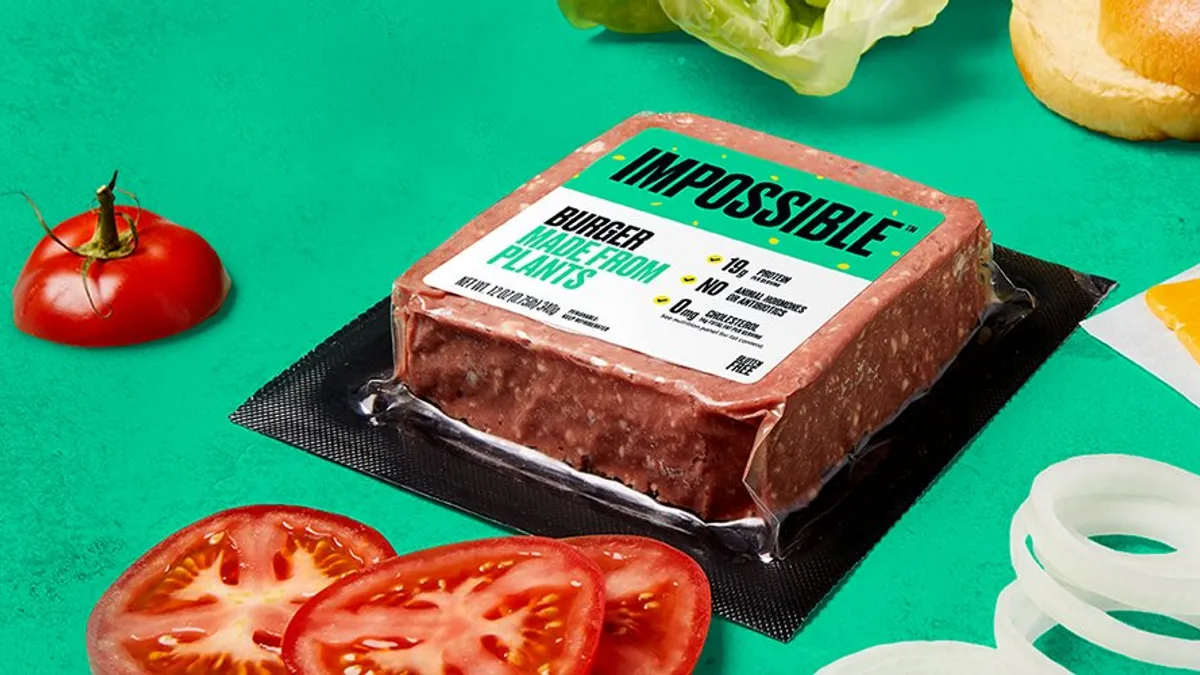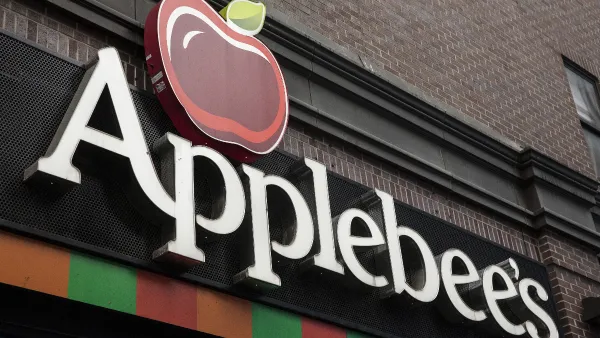UPDATE: Jan. 9, 2019: Impossible Foods walked back CEO Patrick Brown's statement to Reuters that "it would be stupid" for the company to seek a deal with McDonald's because of inadequate supply in a statement to Restaurant Dive Wednesday. Brown also told Business Insider Wednesday that the company hasn't dropped its pursuit of McDonald's, stating the company "would never blow off or disrespect a potential customer and any suggestion that we would do that is complete nonsense."
Dive Brief:
- Impossible Foods announced Tuesday that it will no longer pursue a supply deal for its plant-based burgers with McDonald's, according to Reuters. Rival plant-based protein producer Beyond Meat's stock price surged on Tuesday following the news.
- CEO Pat Brown told Reuters "it would be stupid for us to be vying for them right now ... Having more big customers right now doesn't do us any good until we scale up production."
- McDonald's announced on Wednesday that it is expanding its Beyond Meat pilot in Canada to an additional 24 restaurants.
Dive Insight:
Brown also confirmed to Business Insider Wednesday that Impossible still needs to scale up its production capacity.
"We are obviously not going to commit to some very, very large scale until we have certainty about our ability to maintain supply," he told BI.
Impossible has good reason for that. The company recently suffered a supply shortage in 2019 following its partnership with Burger King, which more than doubled its restaurant count at the time and left partner restaurants White Castle and Red Robin in a pinch. This forced a number of restaurants to tap rival Beyond Meat, undermining Impossible Foods' standing in the plant-based race.
Still, Brown appears concerned about ceding market share to plant-based rivals, recently stating that other companies producing plant-based meat alternatives "suck" and that when diners eat competitor products, it harms perception of plant-based protein overall. It's interesting, however, that just this week Impossible announced the launch of Impossible Pork and Impossible Sausage, the latter of which will be offered in a test at Burger King. Introducing new products the same week it admits it doesn't have the capacity to work with McDonald's anytime soon raises the question of whether it has too many irons in the fire.
McDonald's seems pleased with its Beyond Meat trial for its plant-based "P.L.T." burger, however, which began in September at 28 Canadian restaurants. As of December, McDonald's is selling 20 to 30 P.L.T. burgers per day in its pilot, and some urban areas are driving daily sales of 100 plant-based burgers or more, according to to UBS research reported by Reuters.
"This test allows us to learn more about real-world implications of selling the P.L.T., including customer demand and impact on restaurant operations," McDonald's VP of global menu strategy Ann Wahlgreen said in a statement.
UBS also estimates that McDonald's could sell more than 250 million vegan burgers annually if it brought the P.L.T. product to its entire U.S. network, and some estimate that the restaurant would need to sell 300 to 400 Beyond Meat burgers per week for the product to be a viable addition to its menu.
Given the trial expansion in Canada, it seems likely that McDonald's would consider Beyond Meat if it brings the P.L.T to American diners. But McDonald's is known to source from multiple suppliers for its products, and given the supply issues that both Beyond and Impossible have suffered in the past — and the fact that it's P.L.T. branding doesn't rely on a supplier company name — it may be best to rely on multiple plant-based providers for a U.S. launch.
Still, given the brand loyalty that diners have to either Beyond or Impossible and their ingredient differences — Beyond Meat is soy-free — sourcing from both plant-based meat heavyweights could be challenging from a product consistency perspective.













